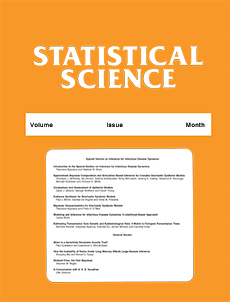Abstract
The spread and impact of COVID-19 have disrupted human activities and energized a response of scientific activity on a remarkable, nearly unprecedented scale. This has somewhat distracted attention from a broad range of less immediate but fundamentally more serious global threats resulting from human actions. These can be collectively labelled the anthropocene disasters.
Science cannot itself prevent or mitigate them. To do so requires a global policy resolve not currently existing. When and if that resolve emerges, science will be essential for guiding action. This science will be radically data-intensive, global and inclusive. Teams will be required that include the best and most motivated individuals from all relevant scientific disciplines, plus members knowledgable about implementing likely policy recommendations. Such participants must be attracted to join and then properly supported and rewarded–not likely with current academic structures. Some insights can be gained from the recent experience with COVID-19 and the much less recent example of research at Bell Labs.
Citation
John M. Chambers. "Data, Science, and Global Disasters." Statist. Sci. 37 (2) 284 - 288, May 2022. https://doi.org/10.1214/22-STS858





